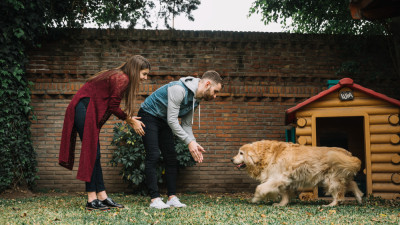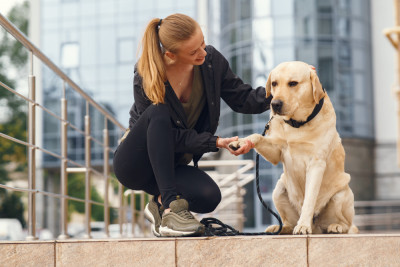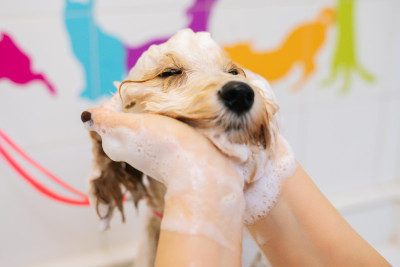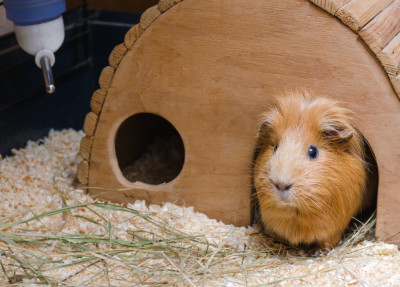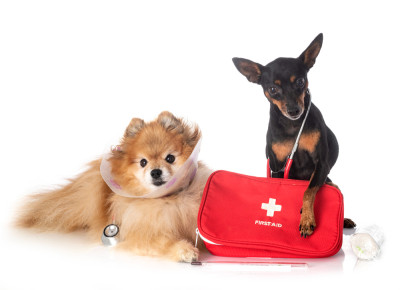1. Research and Choose the Right Breed
Before bringing a dog into your home, research different breeds to find one that matches your lifestyle and preferences. Consider factors such as size, energy level, grooming needs, and temperament. Whether you choose a purebred or a mixed breed, understanding your dog's characteristics is crucial for a harmonious relationship.
2. Adoption vs. Breeder
Decide whether you want to adopt a dog from a shelter or rescue organization or purchase from a responsible breeder. Adoption can give a loving home to a dog in need, while responsible breeders ensure healthy, well-cared-for puppies. Avoid puppy mills and backyard breeders.
3. Puppy or Adult Dog
Consider whether a puppy or an adult dog is the right fit for your lifestyle. Puppies require more time, patience, and training, while adult dogs may be a better choice for those with a busier schedule.
4. Puppy Proof Your Home
Puppies are curious and may explore by chewing on objects. Puppy-proof your home by removing hazards such as toxic plants, chemicals, and small objects that could be swallowed. Use baby gates to restrict access to certain areas.
5. Training and Socialization
Invest in training and socialization from an early age. Basic obedience commands like sit, stay, and come are essential for safety and a well-behaved dog. Socializing your dog with other dogs and people is crucial for their development.
6. Consistent Routine
Establish a consistent daily routine for feeding, exercise, and bathroom breaks. Dogs thrive on predictability, and a routine helps them feel secure and well-adjusted.
7. Nutrition and Health Care
Feed your dog a high-quality, balanced diet appropriate for their age and size. Consult your veterinarian for dietary recommendations and a vaccination schedule. Regular vet check-ups and preventive care are essential for your dog's health.
8. Exercise and Mental Stimulation
Dogs need both physical and mental stimulation to stay happy and healthy. Provide daily exercise through walks, playtime, and activities like fetch. Puzzle toys and interactive games can engage your dog's mind.
9. Grooming and Hygiene
Regular grooming is essential, and the level of care depends on your dog's breed. Brush your dog's coat, trim their nails, clean their ears, and maintain dental hygiene. Grooming also serves as a bonding experience.
10. Proper Identification
Ensure your dog has proper identification, including a collar with an ID tag and a microchip. In case your dog gets lost, these identification methods increase the chances of a safe return.
11. Patience and Positive Reinforcement
Use positive reinforcement techniques, such as praise and treats, to reward good behavior. Be patient and consistent in your training efforts, avoiding punishment-based methods.
12. Safety Measures
Create a safe environment for your dog by securing fences and gates, using leash and harness when walking, and being cautious around hazards like open windows or swimming pools.
13. Build a Strong Bond
Spend quality time with your dog to build a strong bond. Play, cuddle, and engage in activities that strengthen your connection.
14. Respect Their Needs
Respect your dog's physical and emotional needs. Provide them with love, attention, and companionship. Dogs are social animals and thrive on human interaction.
Conclusion
Being a first-time dog owner is a rewarding experience filled with love and joy, but it also comes with responsibilities. By researching, choosing the right breed, providing proper training, nutrition, and care, you can ensure your dog's well-being and happiness. Remember that every dog is unique, and it may take time to adjust to your new furry family member. Be patient, and enjoy the journey of creating a loving and fulfilling relationship with your canine companion.

